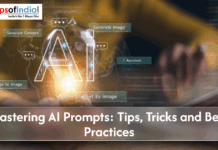For event management and event planning to be successful, a few talents are required. At various times along the process, qualities such as attention to detail, inventiveness, patience, and strategic thinking are necessary. As a result, it’s critical to approach event management with a strong plan that will help you navigate the rough path and emerge relatively unharmed, showered in the glory of a successful event.
The 5Cs of Event Management:
- Concept
- Coordination
- Control
- Culmination and
- Closeout
Concept:
The event concept is the first stage in preparing a great event. First, consider why the event is being hosted. One of the most effective methods is to consider the most incredible concerts ever held. Even if your event isn’t a concert, this offers you a sense of how you want people to feel.
There is likely to be an event that you have attended that has left you with long-lasting memories. This is what you intend to accomplish with your event. Consider why you are organizing this event. What is the event’s purpose? You might want to organize an event to entertain people. Perhaps the event is a fundraiser for a nonprofit organization. Maybe this is a seminar to teach a specific subject.
Once you’ve determined the ‘why,’ you’ll want to choose who the event is intended for. Next, you want to discover your target audience, the people who will most enjoy and benefit from your event. This will assist you in determining the event’s ‘what.’ This implies that you will be free to decide what the event will include – speakers, performances, activities, food, and so on.
Coordination:
We hope you understand how to organize a schedule effectively. After you’ve conceptualized your event, the following stage is to coordinate it. It will entail developing a theme or basic idea for the event. Once you’ve decided on an article, you’ll have a better idea of the location, decorations (if necessary), and any other requirements for the event, such as hiring a speaker or utilizing audio/visual equipment.
You must reserve the dates and venue well in advance. If you can’t locate the perfect time and place right away, make sure you have some flexibility regarding the dates and venue. Once confirmed, you may begin marketing the event to potential attendees.
Control:
It is one of the most underestimated and frequently disregarded aspects of event management. This is best handled by performing a run-through of the event.
You want to be sure that everything is on track. Arrive at the location and check to see whether there is enough room for all confirmed attendees. You should also check whether there is enough room for the catering business to set up the food.
You also want to stay on top of things and plan for any changes. For example, if a speaker quits, do you have a backup speaker? Have you created a list of choices in case the caterers have a problem?
Culmination:
It is the ‘D-Day’ when the event occurs. Therefore, you and your staff must be on top of things on this day.
You want to create a schedule for everyone engaged in the event. In addition, you want to ensure that the crew gets access to the venue before the event starts so that you can set up and possibly ‘rehearse’ the event before it starts.
As the event progresses, you must ensure that the itinerary is followed at all times. For example, if one speaker is speaking, you must ensure that the second speaker is prepared to talk.
Closeout:
There is still work to be done once the event has concluded satisfactorily. First, you must ensure that all payments and contracts with suppliers, caterers, speakers, and others are fulfilled.
You should also provide feedback to your team. Let them know if they performed an excellent job. If there were any problems, make sure they are rectified as soon as possible to achieve a better job at your future event. Please make sure you also get feedback from them on how you performed as an event organizer.





